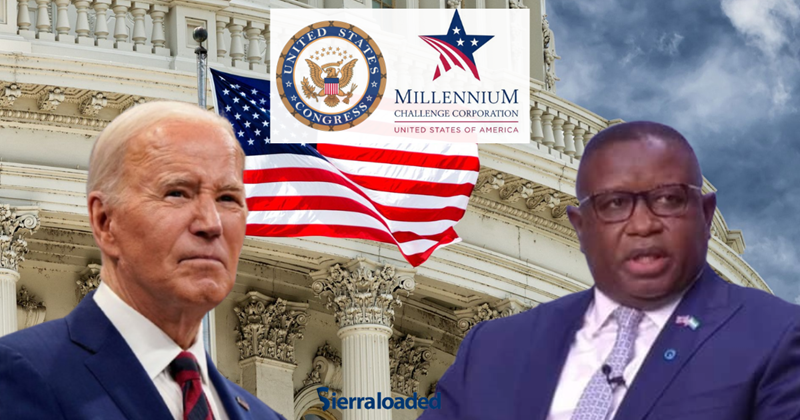The recent announcement of Sierra Leone receiving a $480 million grant from the Millennium Challenge Corporation (MCC) should be a moment of celebration, not opposition.
Yet, some voices are raising concerns, criticizing the award as if it were a political tool handed to the ruling Sierra Leone People’s Party (SLPP). This is not only a mischaracterization but also a misunderstanding of the purpose of the grant and the broader significance it holds for the development of our beloved country.
First and foremost, this grant was not awarded to a political party. It was awarded to the government of Sierra Leone, and aimed at improving the lives of our citizens, particularly through investments in the energy sector.
The MCC, a reputable U.S. government agency, does not base its awards on political affiliations or to curry favor with any political party. The award represents years of hard work, progress, and reforms aimed at meeting the stringent criteria that the MCC demands. It is an achievement for the nation, not for any political party.
To oppose this grant without understanding its implications or the mechanisms by which it will be disbursed is not only shortsighted but deeply unpatriotic. The MCC compact is bound by strict guardrails and strong conditions. Every dollar must be accounted for, and the funds are tied to specific, measurable goals that ensure they are used effectively. This is not a blank check handed over to the government to spend as it pleases. It is a well-structured and thoroughly monitored grant designed to address critical needs, particularly in Sierra Leone’s energy sector.
Let us consider for a moment the vast potential this grant has to transform our energy infrastructure. Sierra Leone has long been plagued by power outages and a lack of reliable electricity, which stifles economic growth, disrupts education and impacts healthcare delivery.
This MCC grant specifically targets the energy sector to improve electricity generation and distribution. It is an investment in the lifeblood of our economy, and its ripple effects will touch every part of society, from boosting small businesses to improving access to essential services. Opposing such a transformative opportunity for political reasons is, frankly, a disservice to the very people we claim to represent.
For those still skeptical, I urge them to look beyond the political lenses and consider what is at stake. This grant is about our future. It is about ensuring that the next generation of Sierra Leoneans grows up in a country with reliable power, a growing economy, and opportunities to thrive. To oppose such progress, especially without a full understanding of the rigorous conditions tied to this grant, is to stand in the way of national development.
To my fellow Sierra Leoneans, let us not allow party politics to blind us to the immense benefits of this award. We can debate, we can critique, but let us never oppose progress for the sake of opposition. The MCC grant is a win for Sierra Leone. It is a step toward the future we all want to see—one of prosperity, opportunity, and growth. Opposing it for political gain is not only unwise, it is unpatriotic.
We should instead be working together to ensure that this grant is used effectively and responsibly. We should celebrate this achievement and hold our leaders accountable for its proper use, not tear down a moment of national progress for short-term political gain. It is time to put our country first and focus on what truly matters—development, progress, and the well-being of the people of Sierra Leone.
In the end, opposing the MCC grant is not a stand against any party. It is a stand against the progress of Sierra Leone itself. And that is a stand we cannot afford to take.



 3 Comments
3 Comments 










You are right. Good write up. Thank you.
I support this writer’s opinion 100%. At least, he has patiently described the word “SENSE” into the heads of fools that called themselves patriotic citizens of our country. Trust me, the evil ones will never stop their attacks.
Check out the writer’s blog page: petemenjorblog.com and see more of his articles